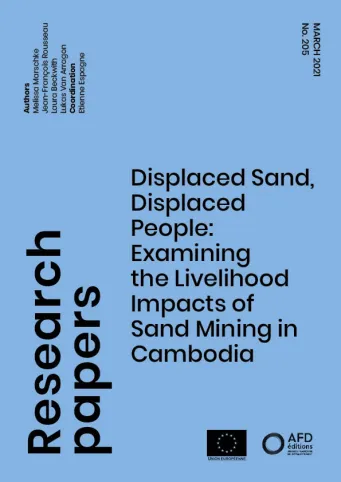Share the page
Displaced Sand, Displaced People: Examining the Livelihood Impacts of Sand Mining in Cambodia
Published on

This working paper focuses on the livelihood impacts of river sand mining in Cambodia. We draw on two examples: (a) that of sand miners, working directly in riverbed sand mining in and around Phnom Penh; and (b) those of urban farmers, whose livelihoods are impacted by the sand infill of urban wetlands. What is consistent across both our cases is how these livelihoods – both connected to sand – are temporal in nature, with limited longer-term prospects. Our cases highlight more than livelihood losses for households: the social, economic and ecological consequences of unabated sand exploitation are profound. We argue that the governance vacuum that our sand mining or infill case studies highlight will impact the type of development seen in and around Phnom Penh, the jobs people can access, and the environment in which people live. Serious sand governance is needed, particularly in conjunction with, or as part of, a more inclusive urban development strategy for Phnom Penh.
Useful Information
-
Authors
-
Melissa MARSCHKE, Jean-François ROUSSEAU, Laura BECKWITH, Lukas Van ARRAGON
-
Coordinators
-
Edition
-
205
-
Number of pages
-
24
-
ISSN
-
2492 - 2846
-
Collection
-
Research Papers
